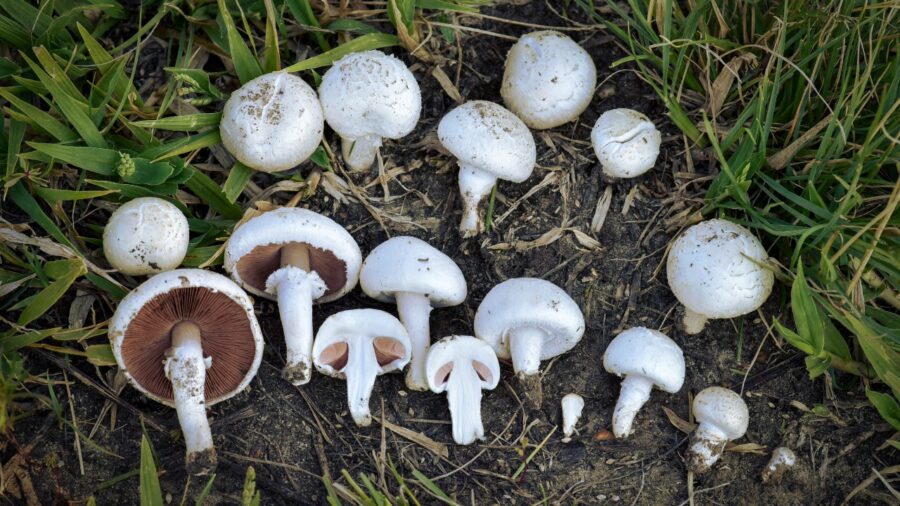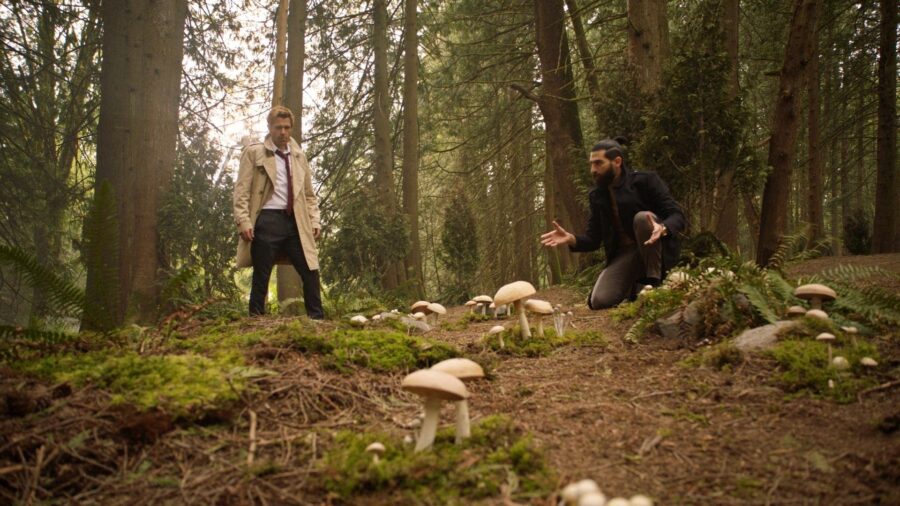A New Company Wants To Bury People In Mushrooms
A mushroom coffin is being marketed by a company as a way to be buried and help the environment.

In The Last of Us, the fungus-infested bodies of the unliving infected are a horrific, stomach-churning sight. Apparently, there must be people out there who have watched the popular HBO show and thought “You know, I want my death to involve mushrooms somehow.” The result, Business Insider reports, is the Dutch startup that is creating biodegradable mushroom-based coffins.
The startup, called Loop Biotech, says that the coffins they make aren’t built — they’re grown. By putting both hemp fiber and the root structure of mushrooms, called Mycelium, into a sarcophagus-shaped mold, they create fully-formed coffins over the course of about a week. This is far faster than the decades it takes to grow a tree used to build traditional coffins.
The mushroom-based coffins also take far less time to break down after burial. While wood is a biodegradable material, wood coffins take years or decades to decompose. Mycelium coffins, however, take about a month and a half to decompose.
According to Loop Biotech, these mushroom coffins are for those who are climate-conscious and who care about nature and the circle of life. They offer a more natural and sustainable option than traditional coffins, which can help reduce the environmental impact of death. For those who find beauty in the circle of life, they are also an elegant way to say goodbye to a loved one.
According to 29-year-old founder Bob Hendrikx, the idea for the mushroom coffins came when he was researching the way that nature recycles materials, turning old materials into the components needed to make new life. Hendrix says that mushrooms are nature’s “biggest recyclers,” breaking down whatever is around them and returning nutrients to the soil.

This mushroom-based coffin, called the “Loop Living Cocoon,” is advertised on Loop Biotech’s website as a way to “Feed the earth,” framing the coffin as a way to “source new life.” It’s just one of several products listed on the company’s website. Other products include the “Loop EarthRise,” a mushroom-based urn that a plant can be placed inside, with the goal of returning the nutrients inside the ashes to the plant when you bury it in a garden or cemetery — an idea similar to the alien burial practice described in Ender’s Game sequel Speaker for the Deal while another product, the Loop Forest Bed, is specifically for traditional Dutch open-casket funerals.
The Loop Living Cocoon is the most expensive of Loop Biotech’s products, with the mushroom coffin costing about $1,000. While this isn’t exactly cheap, it’s far less expensive than the average cost of a coffin in the United States. Traditional wooden coffins will set Americans back between $2,000 and $5,000.
The Loop Earthrise urn is far less expensive than the mushroom coffin. The urn costs roughly $210 — a cost that’s notably pricier than other biodegradable urns available. For example, the American company “The Living Urn” has a biodegradable urn that only costs $70.
While these mushroom-based coffins and urns have caught on in northern Europe, there currently are no plans to bring them stateside. So, those who wish to be slowly eaten up amongst fungi will have to wait for the upcoming cordyceps-based apocalypse.











